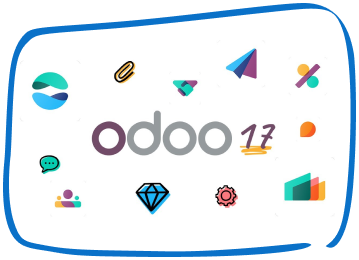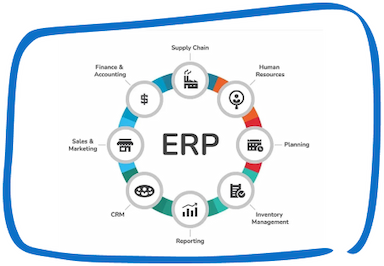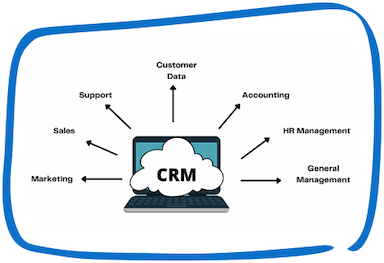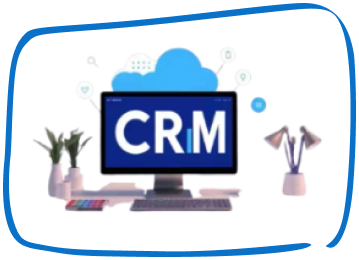What is a Cloud Solution?
In cloud-based computing, applications, storage, on-demand services, computer networks, and other resources are accessible via an internet connection via a shared cloud computing architecture shared by another provider.
As one of the most dependable and efficient management resources, cloud computing is quickly becoming an essential instrument in the business sector.
The on-demand storage solution is seeing tremendous success commercially and is creating enormous waves across industries.
Naturally, the accounting industry is well aware of its unique benefits.
Companies may access their financial data using any internet-connected device at any time, anywhere utilizing this economical and effective solution.
As a result, firms using cloud accounting services can onboard 5X as many clients as those relying on conventional accounting software.
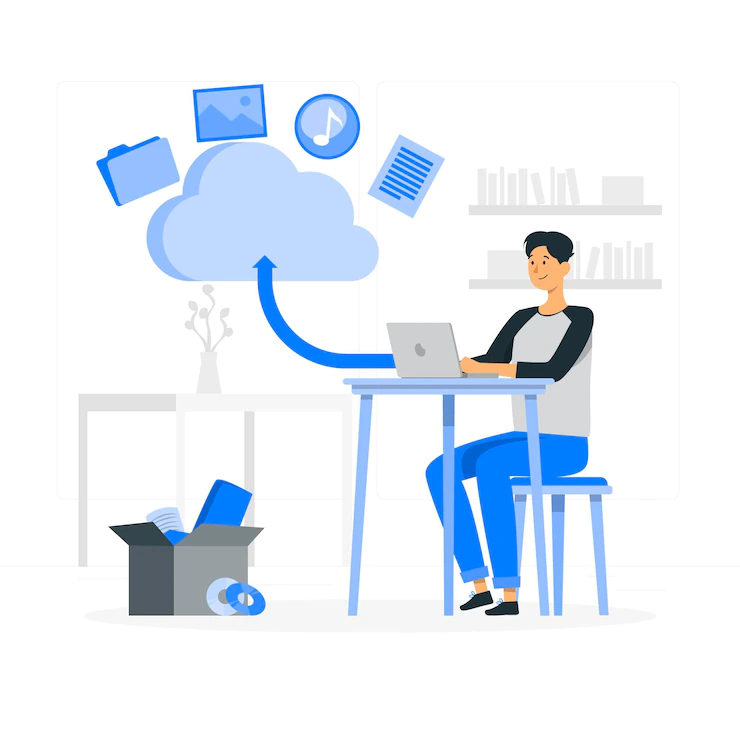
Key Accounting Challenges Businesses Face
Corporate owners, bookkeepers, accountants, and managers are progressively abandoning antiquated accounting procedures in favor of cloud technology as a result of the demand for technologically advanced solutions in today’s business environment.
The main goal is to remain competitive in the current digitization era and to be prepared for the future.
The worrying difficulties accounting businesses encounter daily when dealing with conventional ways of preserving tax reports and storing financial data.
However, this is another significant motivating cause for them to go to the cloud.
1. Lack of mobile access to accounting data.
The majority of CPAs are constantly updating vital financial data in the accounting systems.
Their work obligations extend beyond the hours they are at the office and may call for attention at odd hours or night.
Accounting software that is not accessed remotely, on the other hand, frequently overlooks important tasks.
77% of accountants want to work remotely in some way, so this lack of accessibility has remained a problem for them even in times of COVID-ravaged economies.
But since telework has been a necessary component of remote work up until now, that could mean another setback for the accounting sector, according to several businesses.
2. Higher operating costs and costs associated with outdated technologies
Traditional on-premise accounting software has additional drawbacks, such as higher maintenance costs, a need for backups, and the inability to access data remotely.
They take longer to set up, and since the data is only on that one machine, granting access to it might be difficult.
Furthermore, upgrading to the newest versions often requires additional fees, which can put a strain on your budget.
Not to mention, these solutions are not tailored to meet your specific functional requirements.
Traditional accounting software additionally needs regular upkeep after installation.
Large businesses may be able to manage operational costs, while small businesses frequently struggle to implement advanced IT infrastructure and maintain it.
Negative effects on accounting procedures are a given.
Select Product for Free Demo
3. Ineffective manual accounting data handling
Accountants deal with an endless amount of financial data daily.
It typically entails painstaking manual labor on their part where they engage in a variety of redundant tasks like filtering necessary data, editing it to the client’s requirements, and sharing it with other accountants.
All of these play a crucial role in ensuring accuracy in reporting and gaining clarity on tax filing documents.
Not only does manual data processing need a sizable amount of storage space, but it also takes up a significant portion of an accountant’s day.
Furthermore, it is extremely difficult to recover this financial data in a useful format.
4. Financial setbacks and disruption brought on by novel dangers.
Business continuity issues might arise from outdated accounting technologies.
Technical issues, system flaws, or more major situations like natural disasters are frequently the cause of this.
Due to the unpredictable nature of such difficulties, businesses closed for hours or even days.
This downtime causes conflict within teams, which ultimately lowers productivity and efficiency in the accounting workplace.
The extended discontinuity can lead to significant financial losses.
5. Exposure to security threats
The majority of the accounting information that accountants and bookkeepers work with is private.
This contains a tonne of private data, like credit card information and bank account information.
Naturally, any security flaws or loss of financial data can cause accounting professionals a great deal of grief.
The bad news is that antiquated accounting software lacks cybersecurity protections.
The poor maintenance of data increases the risk of cyberattacks and unauthorized system breaches.
This is especially true for small accounting businesses, which lack the sophisticated cybersecurity defensive mechanisms of larger companies and frequently become the main targets of hackers and cybercriminals.
All these issues that businesses are facing are solved by cloud solutions.
Let’s have look at the benefits of Cloud Accounting Software for Accountants and Business Owners
When you look at account management from the perspective of business expenditure, cloud technology has demonstrated advantages for accountants and business owners.
Companies that invest in cloud-based accounting software can easily make the transition to a paperless workplace, cut back on manual labor, and save on overhead costs.
A study found that employing cloud accounting software accelerated business growth for 87% of companies.
Here are a few game-changing advantages that cloud-based accounting software is known to provide businesses:
1. Time-saving, faultless, and easily transferable
Automating repetitive and laborious activities with cloud-based accounting software might save bookkeepers hours or even days of work.
Modern accounting methods enable the direct acquisition of financial data from documents such as bank statements, emails, photographs, and even online sources.
Financial entries are unlikely to include any errors because they are modifiable and unaffected by human interference.
Due to the cloud storage, there is no need to generate numerous files because the data is available to view, edit, or share with authorized users.
This guarantees smooth teamwork between several groups.
Additionally, accountants can notice strategic trends, evaluate financial data in real time, and get insightful information to prepare for disruptive events.
2. Continuous access anywhere, at any time
Accessibility is made possible 24 hours a day, seven days a week, from any location, using any internet-capable device.
You only need permission to access the hosted environment.
Accounting and bookkeeping professionals can serve several clients simultaneously because of this constant access to data, which helps them expand their business.
3. Complete security and ongoing updates
Business owners and bookkeepers can greatly reduce the risk of cyber theft by transferring important financial data to the cloud.
Reliable cloud accounting software comes with a wide range of security features to protect the confidentiality and privacy of your data.
To prevent unwanted access to your accounting data, security firewalls, data breach detection, and encryption software are in place.
Additionally, cloud-based accounting software automatically backs up your data.
While you work and is accessible even in the event of a natural disaster like an earthquake or a flood.
Your program will always be up to date with the most recent tax rates, modern features, and other essential functionality thanks to regular security updates in real-time.
4. Affordable and customizable
When you choose cloud accounting software, you often benefit from a wide range of advantages by utilizing the specific accounting functionalities your company requires.
Cloud accounting software is very affordable and simple to use because there aren’t any difficult installation or maintenance procedures needed.
Cloud-based accounting software enables accountants to take advantage of add-ons tailored to businesses.
So they can handle client engagement, payroll, invoicing, and tax filing from a single location.
There are also a variety of payroll-related tools available now that are used to manage all payroll-related activities.
5. Scalable, adaptable, and precise
The greatest option for business owners without an accounting background is cloud accounting software.
The majority of accounting operations are automated, therefore user involvement is minimal to nonexistent.
Your cloud accounting file stores all the information you enter and offers a complete picture of your business’s finances, enabling you to make well-informed decisions.
Calculations and expenditure reporting become more accurate as a result of this.
Given the unmatched scalability of cloud-based technology, expanding organizations don’t need to look elsewhere for accounting solutions.
They can adaptably use third-party integrations to meet their objectives.
For instance, firms may manage all operational aspects, from payroll administration to CRM, from a single location thanks to cloud accounting software’s compatibility with practically all third-party accounting software on the market.
Speak with Our Team!
4.9 Stars
1k+ reviews on


